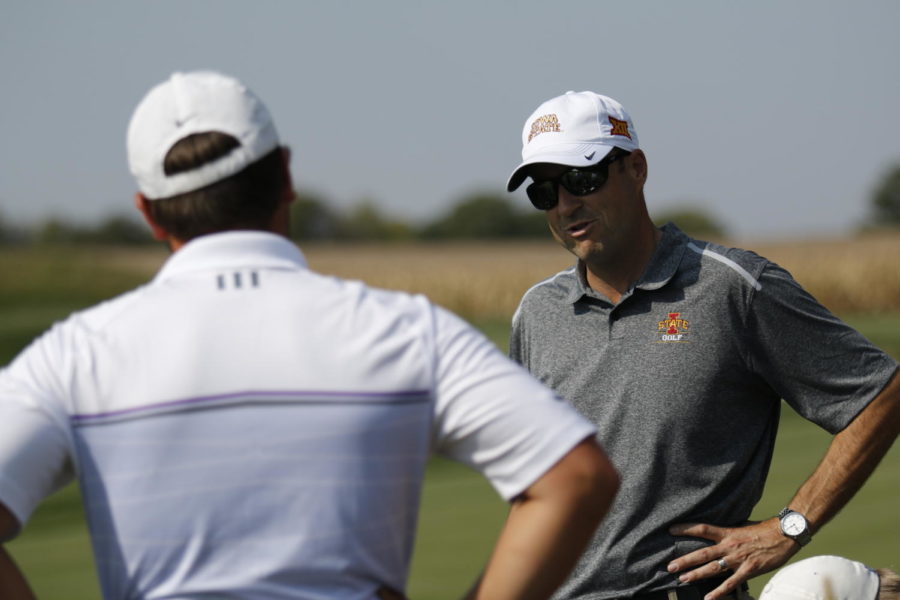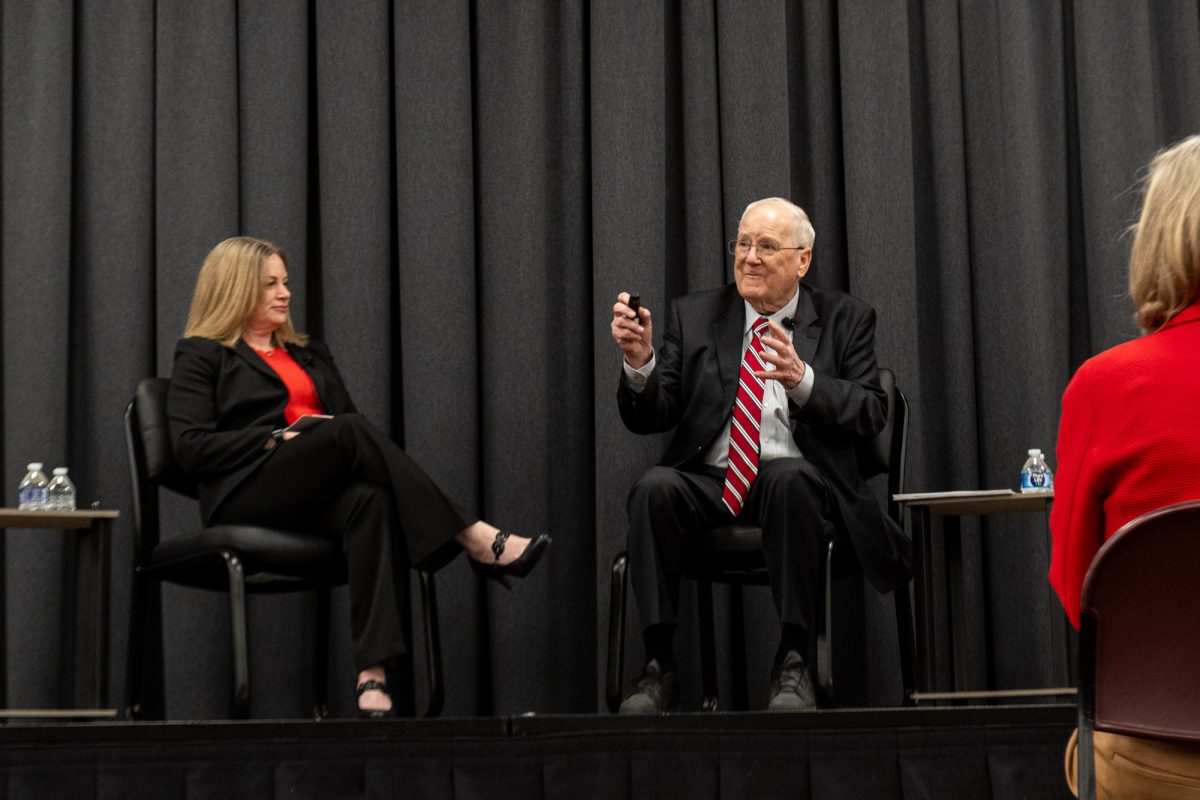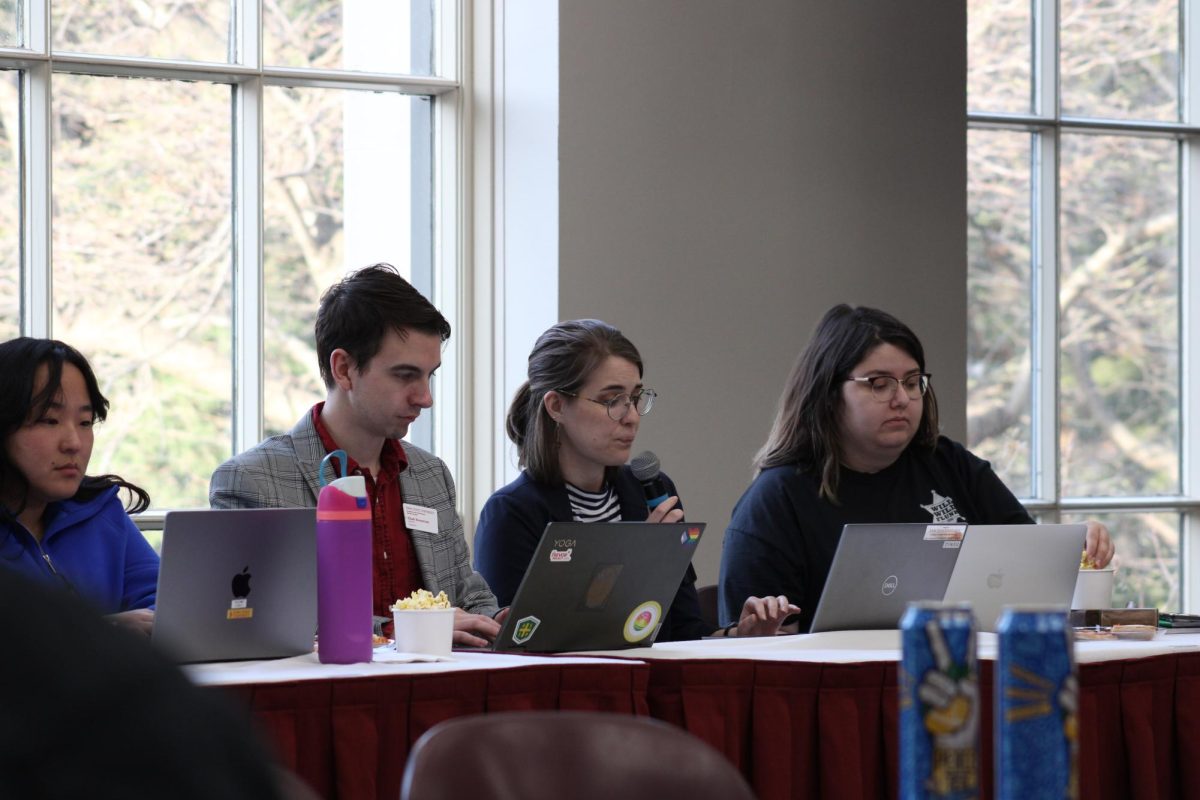ISU men’s golf takes professional approach to preparation
Richard Martinez/Iowa State Dail
ISU men’s golf coach Andrew Tank is seen speaking with senior Sam Daley in October, 2014. Tank will return to his alma mater, Minnesota, at the 2015 Gopher Invitiational on Sept. 13 and 14.
September 22, 2015
In the world of college golf, Southern Methodist golfer Bryson DeChambeau has stolen the show not only for his dominance, but for his unusual methodology.
The 2015 NCAA individual champion and 2015 U.S. Amateur champion has been an All-American golfer for years, but the way in which he’s done it is just as notable.
Every iron in his bag has been cut down to the same length to promote a consistent swing plane. He submerges his golf balls in salt water before using them to ensure they are of the right balance. He even dons a beret-style hat a la Payne Stewart.
From top to bottom, DeChambeau just does things differently, and has prompted some to wonder if his tactics will catch on because of his success.
As for the ISU men’s golf team, no revolutionary changes or ideas are coming from the Cyclones.
“We don’t have any DeChambeaus here,” said ISU coach Andrew Tank.
But it is not to say that they are doing everything strictly by the book.
The team has a small membership and two coaches, giving it a unique advantage for one-on-one training.
“I think what separates this program from a lot of other programs is we’re a small bunch of guys, we can get a lot of individual work with the coach,” said junior Nick Voke. “We have specialists who come down and see us one to one, whereas other schools don’t necessarily have that individual aspect to it.”
With only seven golfers on the roster opposed to many other Division I rosters that number up to the low teens, Iowa State’s two coaches, Tank and assistant Chad Keohane, are able to bounce from player to player with ease and workouts take on a high level of specialization.
Though players can get all the individual assistance needed, Tank has vied for a professional approach to running his program.
“A lot of these guys want to play on the PGA Tour,” Tank said. “They need to learn to make decisions on their own. In college we’re here, we’re the safety net. We’re going to teach them, we’re going to help them, but the goal is that by the time they leave, they’re ready to make those decisions on their own.”
Most upper-tier professionals have trainers and coaches at their disposal on the road, but they don’t always travel from tournament to tournament, and many work for a host of different players.
Tank has sought to smooth the adjustment in his management of the team as a heightened level of independence awaits players upon graduation.
“They’re using me as a consultant, as a resource,” Tank said. “Obviously if they’re not working hard enough, if they’re not doing what they need to do, those kinds of things, that’s when I’m going to step in.”
“I find that that helps them stay invested, stay more motivated when they’ve got some freedom to work on what they need to work on.”






